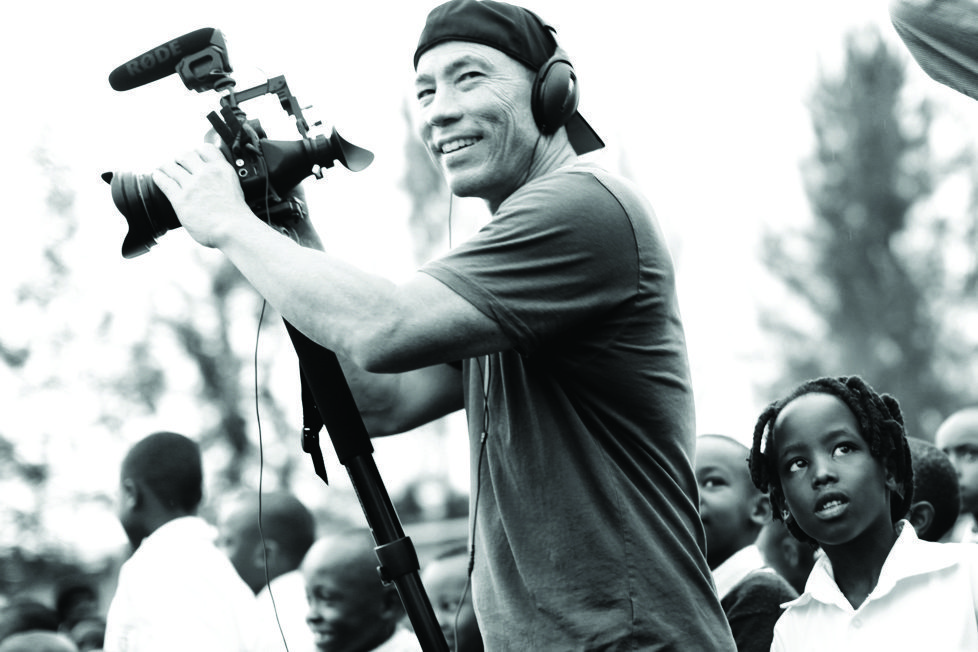When The Salvation Army invited world-renowned surf photographer Aaron Chang to an event, he never expected it to change his life. And yet, it did just that.
Chang was successful, had a thriving career as a photographer and a loving wife, but he still felt like something was missing.
Born in Arizona, Chang got the bug for surfing at just 10 years old when he rode on an air mat in the ocean for the first time.
“It was the most incredible sensation I could have ever imagined, so my whole life began to focus on that,” he said. “I just wanted to be a surfer.”
Chang’s parents moved to Imperial Beach, Calif., when he was 11 and from there it became an all-encompassing passion. However, a broken ankle in high school forced him to be stuck on land, which sparked a passion for photography. With a friend, Chang made a surf movie that he says really hooked him.
In order to be at the heart of surfing culture he moved to Waikiki, Hawaii, after high school and photographed luaus to earn money. “It was brutal, but it was fun,” Chang said.
When he was just 19 years old, Chang made a feature length film called Super 8 and toured California with it. Chang went to Surfing Magazine for a review and it was there that he met the photo editor, who asked if he could shoot stills as well as movies. Chang said yes and the following winter he went back to Hawaii and started shooting. His magazine career had launched.
“In the long run, it turned out very well,” Chang said. “I think one of the reasons I was good at surf photography was because I was a surfer and I really understood it from the inside out.”
To date, Chang’s images have graced the covers of more than 100 magazines. Three years ago, he opened his own gallery in Solana Beach, Calif., named “Best Gallery” in Ranch & Coast and San Diego Magazine in 2011 and 2012. Chang was also recently named “Best Artist of 2013” in Ranch & Coast.
Despite this great success, he still couldn’t shake the feeling that something was missing. Then in 2001, Chang and his wife Erika Fichter welcomed their first son. He said it completely changed his priorities.
“I don’t think I’ve taken anything more seriously than my children—I hate to say that because my wife should’ve come first and she does now,” Chang said. “But it was the birth of our children that caused me to really kind of wake up. I often feel like my life up until that was a disaster.”
His two sons had awakened in him a new sense of purpose; he wanted to be a good parent and role model for them.
When The Salvation Army invited Chang to hear former National Commander Commissioner Israel Gaither speak, it turned out to be the missing piece he was looking for.
“It was definitely the most compelling speech I’ve ever heard in person,” Chang said.
Gaither’s speech was a call to arms and a call to enter into a mindset of servitude.
“I was sitting there kind of bulled over by this and looking around the room and I guess other people know him and are more familiar with him, but to be incredibly naïve to The Salvation Army and what they do and to hear him speak—it made me want to sign up right then and there,” he said.

Since then, Chang has made it a priority to give back through photography any way he can. He recently spoke at a youth entrepreneur day at The Salvation Army Ray & Joan Kroc Corps and Community Center in San Diego, Calif., and worked with World Vision on a project in Cambodia, which highlighted its efforts to combat human trafficking. Chang went on a mission trip to Rwanda with a small Christian school to document its mission program and is working with Plants with Purpose in Haiti.
“Those are things I really like doing and where I spend a lot of my spare time,” he said. “I was starting to do it a little before but didn’t exactly know how or what. It seemed like right after I heard that speech these opportunities started presenting themselves.”
Chang now puts his faith and family before his business and says he doesn’t know how else it would work. He says he’s tried it every other way and it never felt right.
“If I do anything with my life, if I can create two young men with a sense of morality and a faith in Christ, I will count my life as a success,” he said. “All the other stuff really doesn’t matter. It’s just the folly you go through—your businesses, your endeavors, your successes and your failures.
“All that stuff ultimately doesn’t mean anything,” Chang said. “It’s about the relationships you build, your family, your friends and your love of God.”















